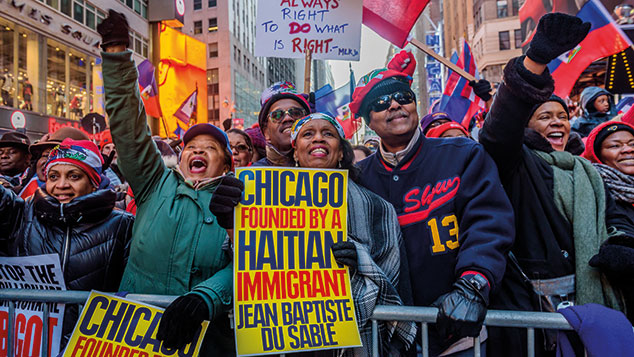
President Donald Trump’s latest outburst has triggered a “fierce backlash” from astonished world leaders, says Boer Deng in The Times. He allegedly referred to several developing countries, including Haiti, as “sh*tholes” during a meeting on immigration reform. The president supposedly claimed he would prefer more immigrants from places such as Norway, rather than Haiti or Africa.
To add injury to insult, these statements came as “he ended a programme to give protective status to refugees from natural-disaster-stricken places, which mostly benefited groups such as Salvadorans and Haitians”. This means that “about 200,000 Salvadorans, the largest group affected, may be deported due to the policy change”.
Trump soon began to insist he hadn’t used derogatory words, but this did nothing to temper the global outrage, notes The Guardian. “There is no other word one can use but racist,” insisted UN human rights spokesman Rupert Colville. “You cannot dismiss entire countries and continents as ‘sh*tholes’, whose entire populations, who are not white, are therefore not welcome.”
The furious reaction to the news “reflects familiarity with Trump’s history”, says Ramesh Ponnuru on the National Review website. “This is the same man who said that a judge of Mexican descent could not do his job fairly because of his ancestry.”
Trump’s businesses, moreover, have often been accused of racial discrimination. People are now also rightly appalled by his idea that America should discourage immigration from countries in turmoil, says Ponnuru. “American immigration policy has usually not followed that principle,” he says. What’s more, “the skills-based reform of legal immigration that Trump has previously endorsed would not discriminate in this fashion”.
Not for the first time, we see that Trump is “cynical and unversed or uninterested in the enduring human and constitutional values his office is sworn to uphold”, says The Observer. This causes practical problems, too – his petulance and ignorance lead to “serial, chronic misjudgements”. This furore threatens “to set back American interests across the world’s fastest-growing continent”, says Kimon de Greef in The New York Times.
These interests include “battling Islamist insurgencies like Boko Haram in west Africa and Shabab in the Horn of Africa; reducing political instability and improving governance, particularly in conflict-torn nations such as South Sudan and Somalia”. Alienating the entire continent will also make it harder for America to exploit “the dynamism of a rapidly urbanising continent… rich in natural resources”.